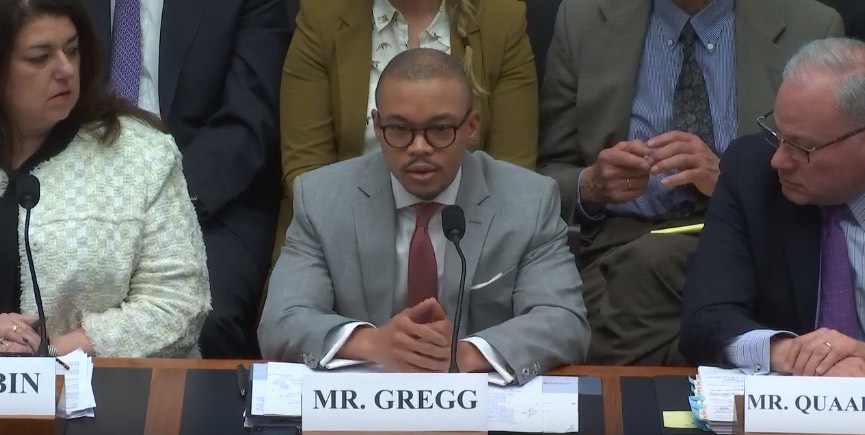House Votes to Ban Forced Arbitration
Public Citizen News / November-December 2019
By David Rosen

This article appeared in the November/December 2019 edition of Public Citizen News. Download the full edition here.
It was a milestone for justice decades in the making. On Sept. 20, the U.S. House of Representatives voted 225-186 to pass the Forced Arbitration Injustice Repeal Act, or FAIR Act (H.R. 1423), which bans forced arbitration in consumer, worker, antitrust and civil rights contexts.
There may be no more blatant example of how giant corporations like Wells Fargo, Equifax, Amazon and Uber rig our economy than forced arbitration: the take-it-or-leave-it, fine print language they insert into consumer, employment, online and other contracts we enter into every day.
In private arbitration, there is no judge or jury, and the right to appeal is severely limited. Arbitrators do not have to follow the law or precedent. The arbitrator has an incentive to keep the company that chose arbitration happy because it is a repeat customer. And proceedings take place behind a veil of secrecy – ensuring that regulators, civil society watchdogs, the media and the public never learn about corporate crimes or widespread harm.
Shockingly, individual consumers seeking relief in arbitration win just 9% of the time, and in an arbitration against a financial company, a consumer ends up paying the company $7,725 on average, according to research by the Economic Policy Institute.
“Corporate apologists for arbitration often say it is an alternative venue to obtain justice, but in practice, it just means cheated or abused consumers, employees and others are out of luck,” said Robert Weissman, president of Public Citizen. “Over the past decade, forced arbitration clauses quietly and insidiously have gone from being the exception to the rule to almost impossible to avoid.”
Hundreds of millions of contracts now contain forced arbitration provisions and class-action waivers – denying consumers, workers and others the ability to file lawsuits in court and preventing them from joining with other similarly situated people to sue together. In August, Public Citizen compiled a “wall of shame” showing that more than 100 major companies now use these clauses to deny justice to customers and workers. Most are household names.
Instead of being forced into a system that is rigged to let corporate criminals off the hook, the FAIR Act would ensure that the victims of rip-offs, scams, wage theft, sexual harassment and discrimination could choose between going to arbitration or going to court. Public Citizen and its allies are leading the fight to pass the FAIR Act, and that fight is far from over.
“Make no mistake: The FAIR Act has a serious chance of becoming law within the next five years, but we have no illusions about the challenge ahead,” said Remington A. Gregg, counsel for civil justice and consumer rights in Public Citizen’s Congress Watch division. Gregg played a major role in bringing about the House’s vote to pass the FAIR Act, including assisting in the legislation’s drafting, meeting with Hill staffers, and leading the broad coalition of consumer, civil rights, and employment organizations that support the FAIR Act. “Nevertheless, forced arbitration has drawn the ire of voices on the right – most famously former Fox News anchor Gretchen Carlson and U.S. Rep. Matt Gaetz (R-Fla.), who backed the House bill – and we have Republican allies in the U.S. Senate who agree with us on ending forced arbitration once and for all.”
With 34 co-sponsors in the Senate – including U.S. Sens. Elizabeth Warren (D-Mass.), Bernie Sanders (I-Vt.), Kamala Harris (D-Calif.), Cory Booker (D-N.J.), Amy Klobuchar (D-Minn.), Tim Kaine (D-Va.), Jacky Rosen (D-Nev.) and Bob Casey (D-Penn.) – the FAIR Act is expected to remain near the top of Congress’ agenda until it becomes law.